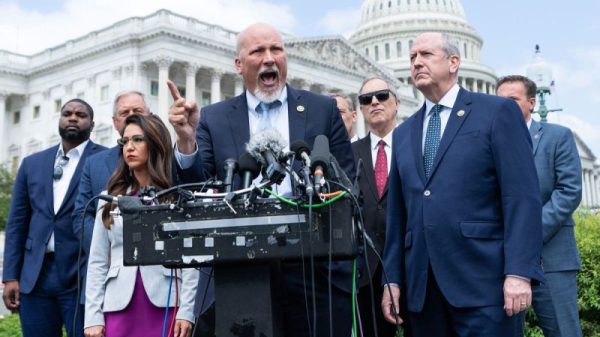If the federal government shuts down Saturday, numerous publicly funded agencies will stop work and their employees won’t be paid, but Social Security checks will still go out.
Social Security is considered a mandatory program, and it isn’t funded by the shorter-term appropriations bills passed by Congress and signed by the president. That means its operations and funding don’t stop when the government shuts down.
That’s important for a large proportion of Americans, as about 67 million people receive monthly Social Security benefits, according to the Social Security Administration. Those benefits go primarily to retirees but also to people with disabilities, as well as dependents of deceased beneficiaries.
Medicare and Veterans Affairs benefits also continue to be distributed during a shutdown.
The federal government will shut down at 12:01 a.m. ET Saturday if Congress does not pass a bill to provide more funding. The GOP has a narrow majority in the House, and a group of hard-line conservatives is holding out from the rest of Republicans and demanding deep cuts in government spending.
President Joe Biden and the Democrats, who control the Senate, oppose those cuts.
Follow live updates on the government shutdown bill vote
In the event of a shutdown, “nonessential” actions would stop, and 4 million federal employees would not receive paychecks.
Some, including members of the military, would work without pay and would receive back pay later on, after a new funding bill is passed and signed into law. Other federal employees would be furloughed and would not report to work.
And a shutdown would stop many other federal programs and services. The Biden administration said in September, when a shutdown looked likely, that the Special Supplemental Nutrition Program for Women, Infants, and Children, or WIC, would stop operating one or two days into a shutdown. Agriculture Secretary Tom Vilsack said that some states might be able to keep their programs running a bit longer than that.
WIC is a program intended to help low-income pregnant and postpartum women, as well as children under age 5, access healthier food. According to the Agriculture Department, more than 6 million people received WIC benefits each month in 2022, including about 39% of all U.S. infants.
A long shutdown could harm the economy, as well. The longest shutdown lasted for 35 days, from Dec. 22, 2018, to Jan. 25, 2019, and the Congressional Budget Office estimated that it cost the U.S. economy at least $11 billion directly, with indirect costs that were harder to quantify.
A government shutdown should not be confused with a debt ceiling standoff. The U.S. reached its borrowing limit, called the debt ceiling, earlier this year. That standoff could have prevented Social Security checks from going out had it lasted long enough, but after a protracted impasse, congressional Republicans and Democrats agreed on a deal to prevent it.


































